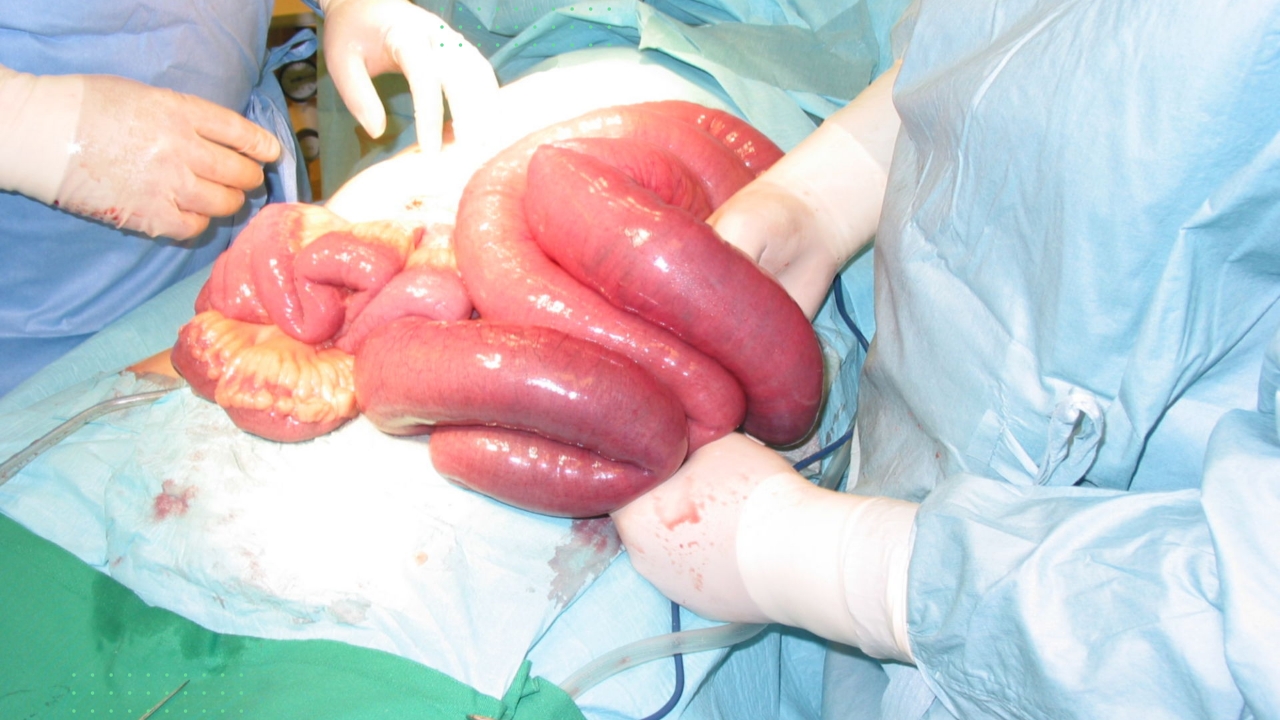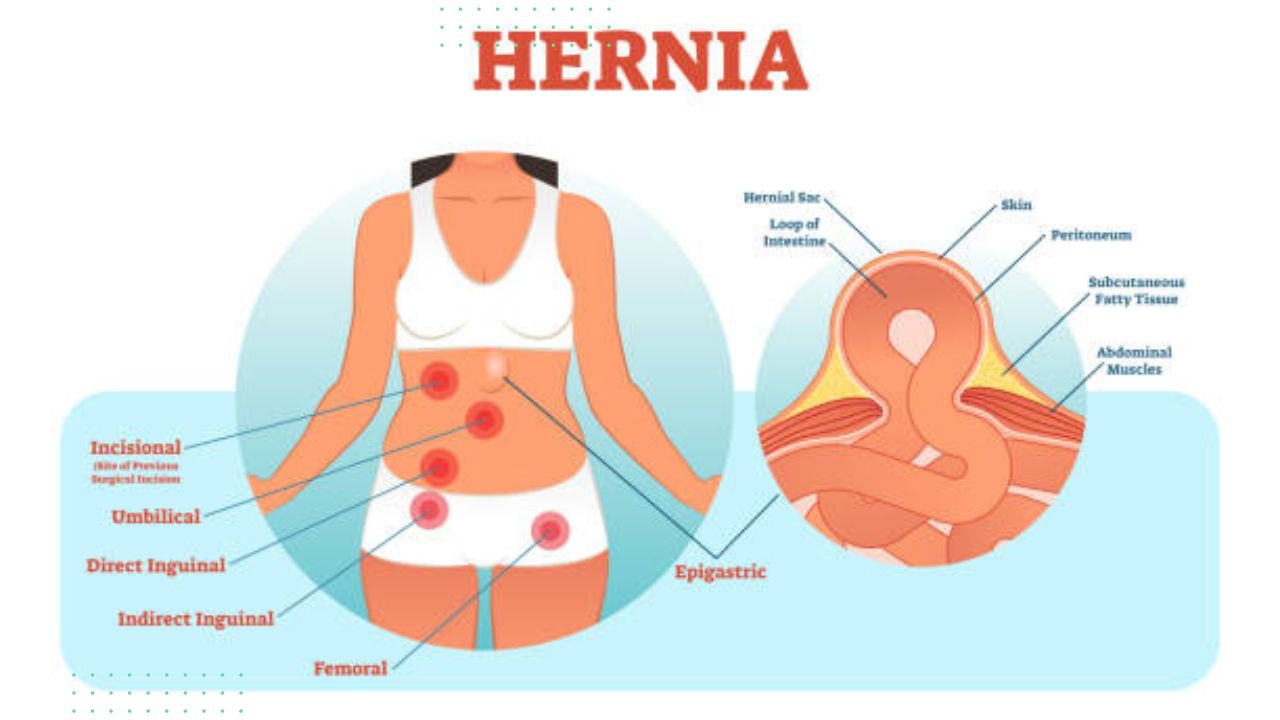Hernia with bowel obstruction is a medical emergency that requires immediate attention. It is caused by a portion of the intestine becoming trapped in a hernia, leading to a blockage of the bowel.
Symptoms can include severe abdominal pain, nausea, vomiting, and an inability to pass gas or stool. Treatment typically involves surgery to repair the hernia and remove any trapped tissue, with the specific procedure depending on the location and severity of the hernia.
A temporary colostomy or ileostomy may be necessary in some cases. It is important to follow your doctor’s instructions for proper care and recovery to prevent further complications.
What is hernia with bowel obstruction
A hernia is a condition where a portion of an organ or tissue protrudes through a weak spot in the surrounding muscles or connective tissue. A hernia can occur in various parts of the body, including the abdomen, groin, and upper thigh.
If the protruding organ or tissue becomes trapped or pinched in the hernia, it can cause a blockage in the intestine, leading to a condition known as bowel obstruction. This can cause symptoms such as severe abdominal pain, nausea, vomiting, constipation, and bloating.
If you suspect that you have a hernia with bowel obstruction, it is important to seek medical attention immediately. Bowel obstruction can lead to serious complications, including bowel perforation, infection, and tissue death.
Treatment for a hernia with bowel obstruction typically involves surgery to repair the hernia and remove any trapped tissue. In some cases, a temporary colostomy or ileostomy may be necessary to allow the bowel to rest and heal. After surgery, it is important to follow your doctor’s instructions for proper care and recovery to prevent further complications.
Types of hernia with bowel obstruction
There are several types of hernia that can lead to bowel obstruction, including:
- Inguinal hernia: This is the most common type of hernia and occurs when a portion of the intestine protrudes through a weak spot in the lower abdominal muscles, near the groin. Inguinal hernias are more common in men than women.
- Femoral hernia: This type of hernia occurs when a portion of the intestine protrudes through a weak spot in the upper thigh, just below the groin. Femoral hernias are more common in women than men.
- Umbilical hernia: This type of hernia occurs when a portion of the intestine protrudes through a weak spot in the abdominal muscles around the belly button.
- Incisional hernia: This type of hernia occurs at the site of a previous abdominal surgery, where the muscles have weakened and a portion of the intestine protrudes through the incision site.
In all of these types of hernias, the protruding portion of the intestine can become trapped, leading to a blockage of the bowel and potentially serious complications. If you suspect that you may have a hernia with bowel obstruction, it is important to seek medical attention right away.
Symptoms of hernia with bowel obstruction
A hernia with bowel obstruction can cause a range of symptoms that can vary depending on the severity of the obstruction and the location of the hernia. Some common symptoms of hernia with bowel obstruction may include:
- Severe abdominal pain: This is often the most prominent symptom of a hernia with bowel obstruction. The pain may be cramping or sharp and may be accompanied by bloating and discomfort.
- Nausea and vomiting: As the bowel becomes obstructed, the body may try to expel its contents, leading to feelings of nausea and vomiting.
- Inability to pass gas or stool: When the bowel is obstructed, it can be difficult to pass gas or stool. This can cause constipation and bloating.
- Abdominal swelling: A hernia with bowel obstruction can cause the affected area to swell and become tender to the touch.
- Fever and chills: If the obstruction is severe or if there is an infection, a person may experience a fever and chills.
If you experience any of these symptoms, it is important to seek medical attention immediately, as bowel obstruction can lead to serious complications.
Causes of hernia with bowel obstruction
A hernia with bowel obstruction can occur when a portion of the intestine becomes trapped in the hernia and is unable to move through the digestive system. This can cause a blockage, which can lead to a range of symptoms and complications.
Some common causes of hernia with bowel obstruction include:
- Weakness in the abdominal wall: A hernia occurs when there is a weakness in the muscles or connective tissue that make up the abdominal wall. This can be caused by a variety of factors, including genetics, age, and certain medical conditions.
- Previous abdominal surgery: If you have had previous abdominal surgery, you may be at a higher risk of developing a hernia, as the surgery can weaken the abdominal wall.
- Heavy lifting or straining: Activities that require heavy lifting or straining can put pressure on the abdominal wall and increase the risk of developing a hernia.
- Chronic constipation or coughing: Chronic constipation or coughing can put pressure on the abdominal wall and increase the risk of developing a hernia.
- Obesity: Excess weight can put additional pressure on the abdominal wall, increasing the risk of developing a hernia.
- Pregnancy: During pregnancy, the growing uterus can put pressure on the abdominal wall and increase the risk of developing a hernia.
It is important to note that not all hernias will result in bowel obstruction, and not all cases of bowel obstruction are caused by hernias. Other potential causes of bowel obstruction include adhesions, tumors, and inflammation.
Diagnosis of hernia with bowel obstruction
A hernia with bowel obstruction is a medical emergency that requires urgent attention. If you suspect that you may have a hernia with bowel obstruction, it is important to seek medical attention right away.
Diagnosis of hernia with bowel obstruction typically involves a combination of medical history, physical examination, and imaging tests. Your doctor will ask about your symptoms, medical history, and any previous surgeries or abdominal injuries.
During a physical examination, your doctor will carefully examine the abdomen for signs of a hernia or blockage. They may also perform a rectal exam to check for any signs of blockage or inflammation.
Imaging tests, such as an X-ray, CT scan, or ultrasound, may be used to confirm the diagnosis and identify the location and severity of the hernia and bowel obstruction. Blood tests may also be used to check for signs of infection or other abnormalities.
If a hernia with bowel obstruction is suspected, urgent surgical treatment is typically required to prevent further complications. It is important to follow your doctor’s instructions for proper care and recovery to ensure the best possible outcome.
Treatment of hernia with bowel obstruction

Hernias with bowel obstruction require urgent medical attention, as the obstruction can lead to serious complications such as tissue death, bowel perforation, and infection. Treatment for hernia with bowel obstruction typically involves surgery to repair the hernia and remove any trapped tissue.
In some cases, a temporary colostomy or ileostomy may be necessary to allow the bowel to rest and heal. During a colostomy or ileostomy, a surgeon creates an opening in the abdomen, allowing the stool to bypass the affected area of the bowel and empty into a bag attached to the outside of the body. This is usually a temporary measure until the bowel is healed and normal bowel function can be restored.
After surgery, it is important to follow your doctor’s instructions for proper care and recovery to prevent further complications. This may include taking pain medication, avoiding heavy lifting or strenuous activity, and eating a healthy diet to promote healing.
It is also important to monitor for signs of infection or other complications, such as fever, redness or swelling at the surgical site, or worsening pain. If you experience any of these symptoms, it is important to contact your doctor immediately. Follow-up visits with your surgeon may be necessary to ensure proper healing and monitor for any potential complications.
Surgical treatment for hernia with bowel obstruction
Surgical treatment is typically required for a hernia with bowel obstruction, as this condition can lead to serious complications if left untreated. The primary goal of surgery is to repair the hernia and remove any trapped tissue, allowing the bowel to function normally.
The specific surgical procedure used will depend on the location and severity of the hernia. In some cases, the hernia can be repaired using laparoscopic surgery, which involves making several small incisions in the abdomen and using a small camera and specialized tools to repair the hernia.
In other cases, open surgery may be necessary, which involves making a larger incision in the abdomen to access the hernia. During the surgery, the surgeon will carefully inspect the intestine to ensure that there is no damage or signs of infection.
In some cases, a temporary colostomy or ileostomy may be necessary to allow the bowel to rest and heal. This involves creating an opening in the abdomen and attaching a bag to the outside of the body to collect stool.
After surgery, it is important to follow your doctor’s instructions for proper care and recovery. This may include taking pain medication, avoiding heavy lifting or strenuous activity, and eating a healthy diet to promote healing.
It is also important to monitor for signs of infection or other complications, such as fever, redness or swelling at the surgical site, or worsening pain. If you experience any of these symptoms, it is important to contact your doctor immediately. Follow-up visits with your surgeon may be necessary to ensure proper healing and monitor for any potential complications.
